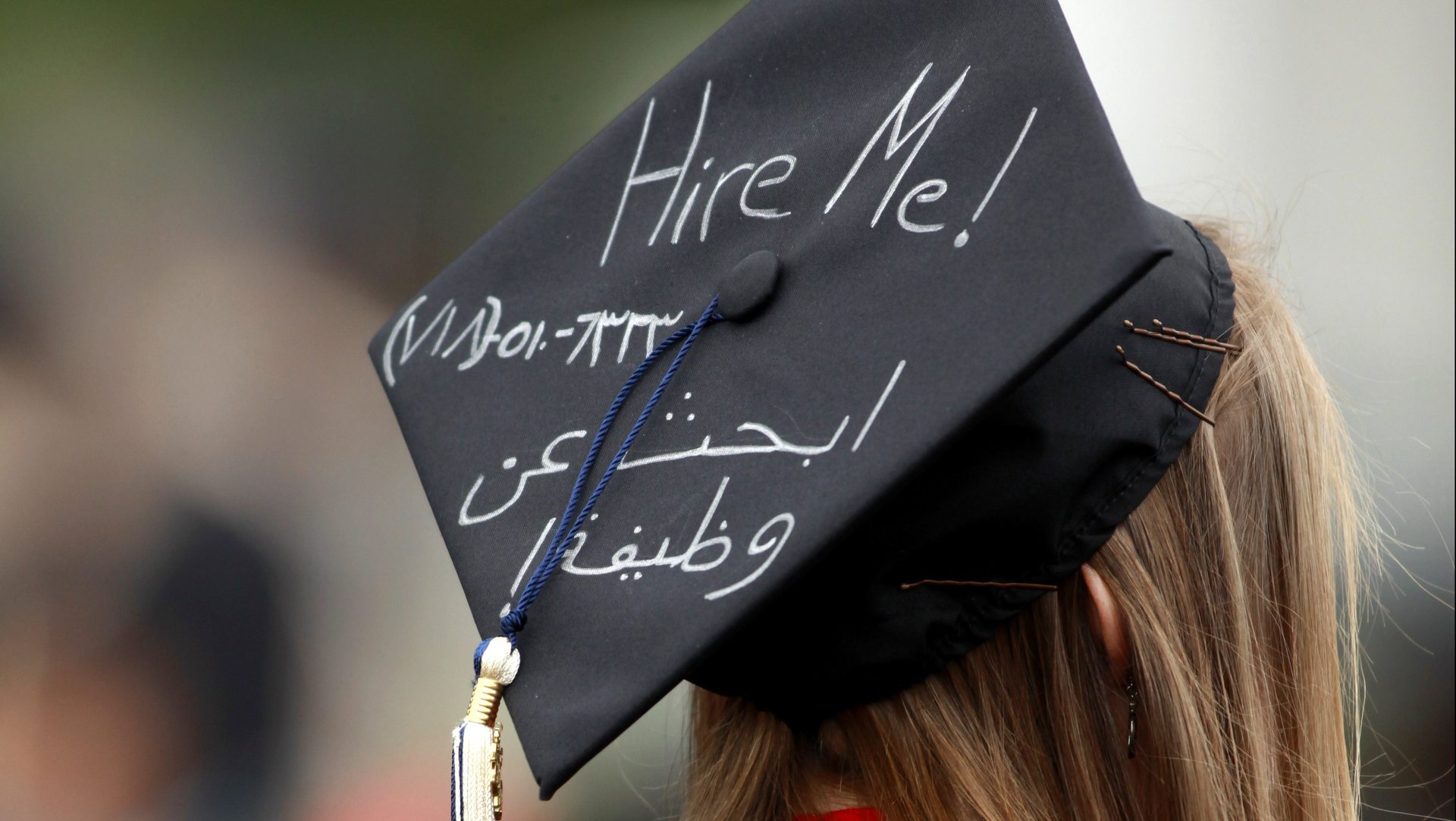Please avoid this biased hiring practice during the economic recovery
As US unemployment numbers hover at previously unimaginable heights, the reverberations following George Floyd’s death compel us to reckon with America’s stark economic inequality. And so, for the first time, companies are making a concerted effort to identify where covert racism lurks in their corridors. Here is one suggestion: Start by looking at the educational and experience requirements in job postings, specifically for entry-level positions.


As US unemployment numbers hover at previously unimaginable heights, the reverberations following George Floyd’s death compel us to reckon with America’s stark economic inequality. And so, for the first time, companies are making a concerted effort to identify where covert racism lurks in their corridors. Here is one suggestion: Start by looking at the educational and experience requirements in job postings, specifically for entry-level positions.
Non-desk jobs (you may know them as “blue collar,” “frontline,” “entry-level,” or—the worst—“low-skill” jobs) are typically filled in batches, with multiple people hired and trained each week. To ease the burden on recruiters reviewing a high volume of candidates, it can be tempting for companies to adopt automatic filters, or “knock-out questions,” where applicants who don’t meet some basic requirements are automatically rejected from the candidate pool.
Perhaps the most well-known knock-out question is the criminal record box, long criticized for making it extremely difficult for ex-offenders to reincorporate into society. With the racial disparities in the prosecution of felonies coming increasingly under fire, 13 states now prohibit private employers from asking about criminal history, according to the National Employment Law Project.
But other similarly discriminatory job criteria receive much less attention. Let’s begin by scrutinizing one such knock-out question, so heavily relied upon that it is rarely questioned: education. It’s an objective measure, and it’s easy to assume that the more degrees an applicant has, the easier they will be to train, and the more adept they will be at any job. And yet, this is not the case.
Think about it: Does having a bachelor’s degree make someone a good barista? Or is it attention to detail and a sociable attitude that ensure perfect cappuccino foam and happy customers? Would you have been better at packing online orders in a fulfillment center after 12th grade than you would have after 11th? Or would your success in that role be more dependent on whether you enjoy the mental game of perfecting your process and competing against yourself on speed?
Relying on education knock-out questions isn’t just sloppy hiring. It’s biased. Finishing high school and attending or completing college is driven as much by geography and the economic situation of one’s parents as by one’s intellectual horsepower. And when companies only hire applicants who meet an unnecessary education requirement, they put an unfair burden on minority applicants. According to 2016 data from the National Center for Education Statistics, 92% of white adults in the US have a high school degree, compared with 85% of Black adults and 67% of Hispanic adults. For non desk-jobs, requiring a degree unrelated to the position essentially guarantees that fewer Black and Hispanic applicants will be considered, creating a biased hiring process.
De-biasing the hiring process for hourly wage jobs will not solve racial socioeconomic inequality in this country; the wage gap between Black and White workers remains a shocking and complex reality—one that will require us to look more closely at disparities in pay, job quality, and so much more. But making jobs equally accessible to all those who are qualified—by making hiring decisions that are based on personality fit rather than fall-back criteria such as education—is a necessary first step in increasing employment rates for underemployed groups.
It’s a smart move for employers, too. Occupational psychology models like the Maslach Burnout Inventory are based on findings that job candidates who are chosen because their personalities align with the demands of the role are more likely to excel and less likely to suffer from burnout.
As we begin the slow process of reopening and economic recovery, Americans are likely to find the journey out of unemployment to be a bumpy one. Why add rubble to the already rocky path to employment by making bad job matches? Companies must do their part to mitigate the instability of a recovering economy. Being fair, intentional, and thorough in the hiring process is one attainable step they can take to do so.
Sara Nadel, PhD, is co-founder and chief science officer at StellarEmploy, which uses data to help companies make smarter hiring decisions and reduce turnover.